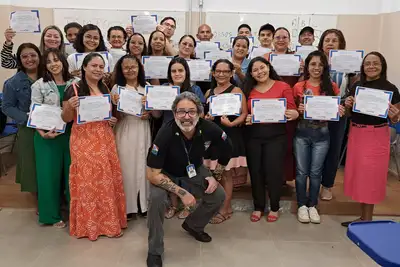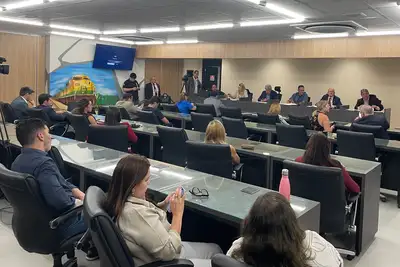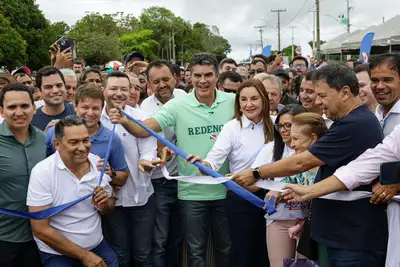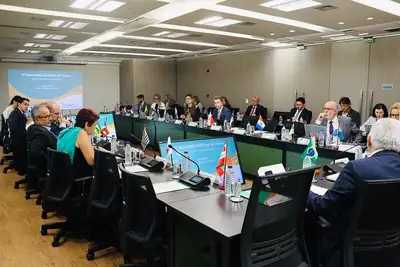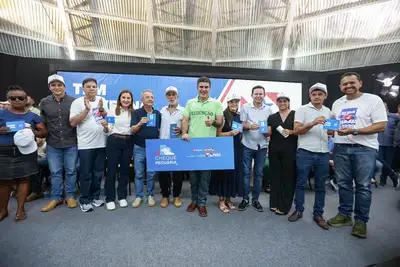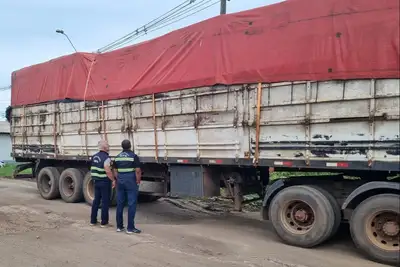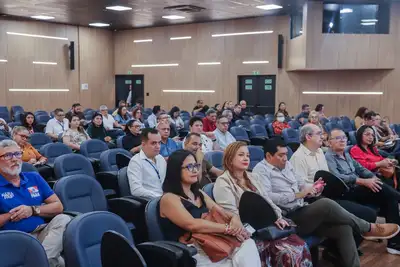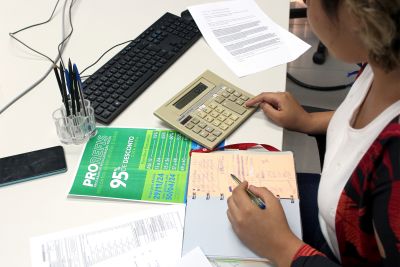Semas reinforces circular economy at COP 30 with delivery of the Moinho Formiga shredder
The equipment is part of a set of investments that the state government has been making to structure recycling cooperatives in various municipalities
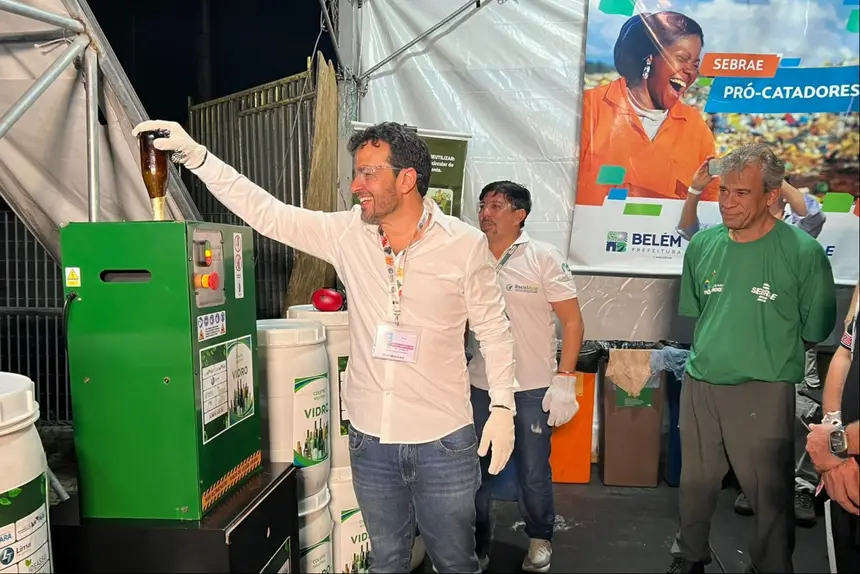
The State Secretariat for the Environment, Climate and Sustainability (Semas) participated, this Tuesday (18), in the delivery of the Moinho Formiga, a mobile glass bottle shredder that began operating at the Catador Space, in the En-Zone, during COP30 in Belém. The initiative is the result of a partnership between Semas, the State Secretariat for Women (Semu), Sebrae Pará, and the ReciclAssu cooperative, and demonstrates how coordinated actions between government, private initiative, and civil society enhance the circular economy and strengthen the work of collectors in the Amazon.
The equipment transforms glass bottles into shards, facilitating reverse logistics and reducing environmental impact. At COP 30, the Moinho Formiga also plays an educational role, raising public awareness about the importance of proper waste disposal. The crushed glass is stored in 40-liter drums provided by the entity, which is also responsible for transporting the material to cooperatives in the Central Amazon Network, where it will be directed for reverse logistics.
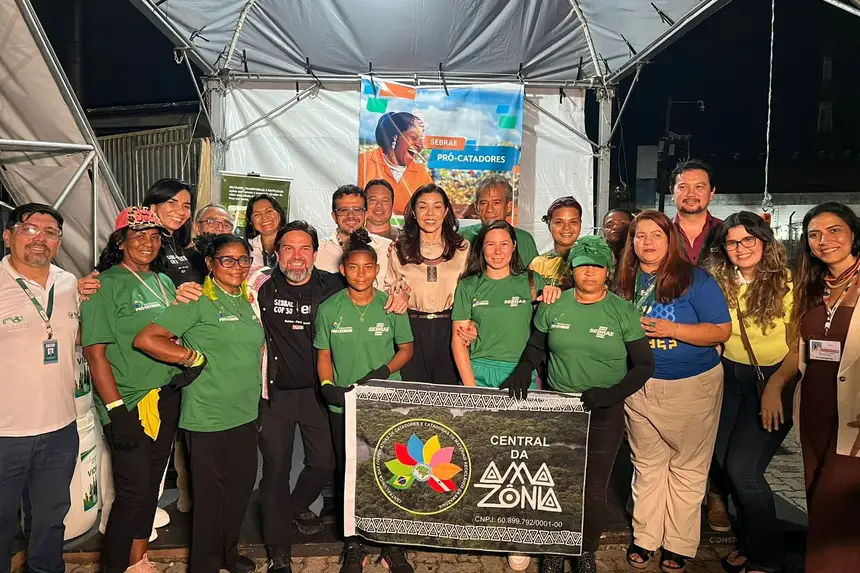
According to the Deputy Secretary of Environmental Management and Regularity of Semas, Rodolpho Zahluth Bastos, the shredder is part of a set of investments that the State has been making to structure recycling cooperatives in various municipalities. He highlighted that Pará has designed a public-private partnership arrangement focused on strengthening collectors. “We have already delivered a conveyor belt, a larger glass shredder, a hydraulic press, and other equipment to the Igarapé Açu cooperative. Between May and November, they managed to allocate 115 tons of glass to the reverse logistics system of the Brazilian Beverage Association. This shows the impact that strengthening these organizations brings,” he stated.
The deputy secretary also announced that new deliveries are scheduled for December, including equipment for cooperatives in Salinas, Salvaterra, and Algodoal. The Moinho Formiga presented at COP30 will be allocated to the cooperative at Praia de Fortalezinha, where the volume of bottles is high due to tourist flow. “This equipment shreds 60 bottles per minute, greatly accelerating the work of collectors. We want to establish a productive inclusion policy in which they are paid, valued, and placed at the center of waste policy,” he added.
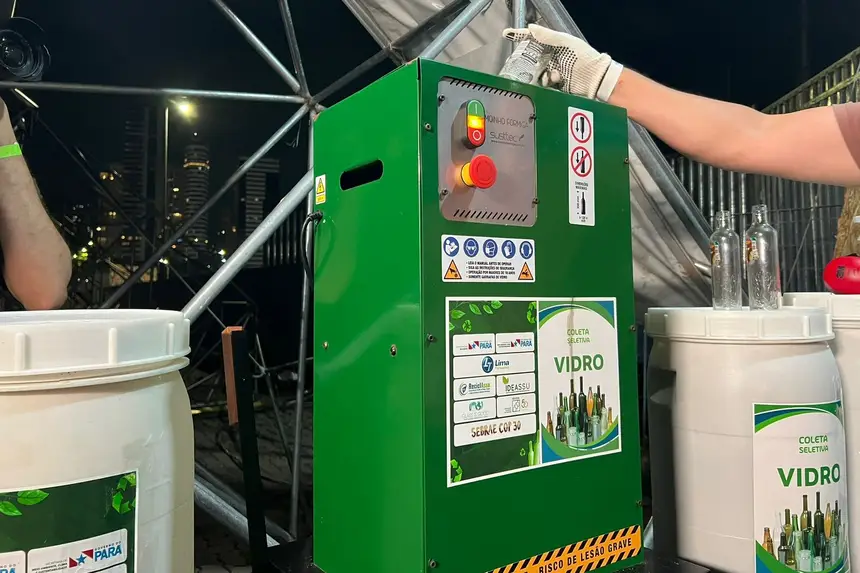
The State Secretary for Women, Paula Gomes, emphasized that the delivery is the result of the department's coordination with cooperatives led by women. According to her, many organizations face difficulties in receiving equipment and expanding their operational capacity. “We coordinated with Semas and were promptly attended to. Today we see women running equipped cooperatives, with more safety and adequate working conditions, strengthening the entire chain,” she highlighted.
The Superintendent Director of Sebrae Pará, Rubens Magno, reinforced that collectors are seen as fundamental entrepreneurs in the circular economy. “Sebrae sees these people as important economic agents. This partnership with the State Government shows that it is possible to unite sustainability, social inclusion, and economic development,” he said.
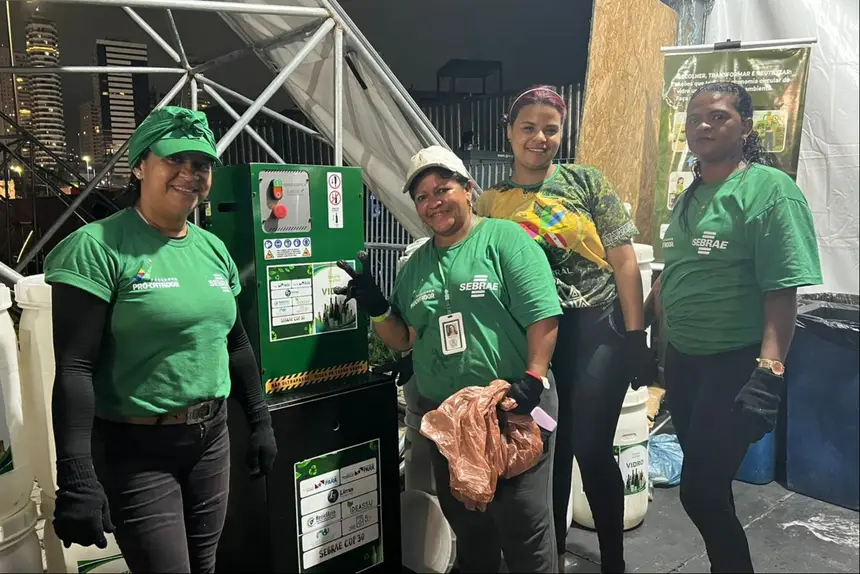
For the workers directly involved in recycling, the impact is immediate. Collector Rosalina do Rosário, from the island of Outeiro, celebrated the advancement: “We have a lot of difficulty with glass. This machine will greatly improve our work. There is a lot of glass on our island, so this will triple our collection.”
With the delivery of the Moinho Formiga, Pará reinforces its commitment to public policies that unite the reduction of environmental impacts, productive inclusion, and strengthening of cooperatives, boosting concrete practices of circular economy in the Amazon territory.




